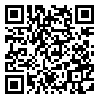Sun, Dec 22, 2024
[Archive]
Volume 10, Issue 4 (12-2018)
itrc 2018, 10(4): 53-60 |
Back to browse issues page
Download citation:
BibTeX | RIS | EndNote | Medlars | ProCite | Reference Manager | RefWorks
Send citation to:



BibTeX | RIS | EndNote | Medlars | ProCite | Reference Manager | RefWorks
Send citation to:
Sajadi S H, Habibi J, Fazli M A. The Emotional Promulgation of Social Norms in Social Networks Based on Structural Properties. itrc 2018; 10 (4) :53-60
URL: http://journal.itrc.ac.ir/article-1-411-en.html
URL: http://journal.itrc.ac.ir/article-1-411-en.html
1- Department of Computer Engineering Sharif University of Technology Tehran, Iran , sajadi@ce.sharif.edu
2- Department of Computer Engineering Sharif University of Technology Tehran, Iran
2- Department of Computer Engineering Sharif University of Technology Tehran, Iran
Abstract: (2528 Views)
Social norms play an important role in regulating the behavior of societies. They are behavioral standards that are considered acceptable in a group or society and violating them will result in sanction to violator. Both governments and various cultural communities use this social component to solve various problems in society. The use of norms leads to a large reduction in community spending to control harmful behaviors. Social norms have two important aspects of promulgating and sanctioning. They are promulgated by activists in the community and, after creation, are endorsed with a sanction. Norms can be used to promote a variety of different behaviors. Online social networks have established a new and influential platform for promulgating social norms. We first redefined the Rescorla-Wagner conditional learning model in the context of social norms with the help of a norm’s intrinsic properties, and extract the main coefficients in the Rescorla-Wagner model related to it. Based on this model, we extract a network structure related parameter (i.e. clustering coefficient) for any individual in the social network to promulgate the norm with the conditional learning method. In this paper, by using the intrinsic properties of norms, we use and tune the Rescorla-Wagner conditioning model in order to obtain a new model for social norm promulgation. Based on this, we define criteria for the amount of effort required to promulgate norms in social networks. We show that there is negative correlation between the amount of effort required by each node to promulgate a norm and the clustering coefficient of that node. This result can be used to devise effective algorithms for social norms evolution.
Keywords: social network, social norm, classical conditioning, clustering coefficient, Rescorla-Wagner
Type of Study: Research |
Subject:
Information Technology
Send email to the article author
| Rights and permissions | |
 | This work is licensed under a Creative Commons Attribution-NonCommercial 4.0 International License. |




